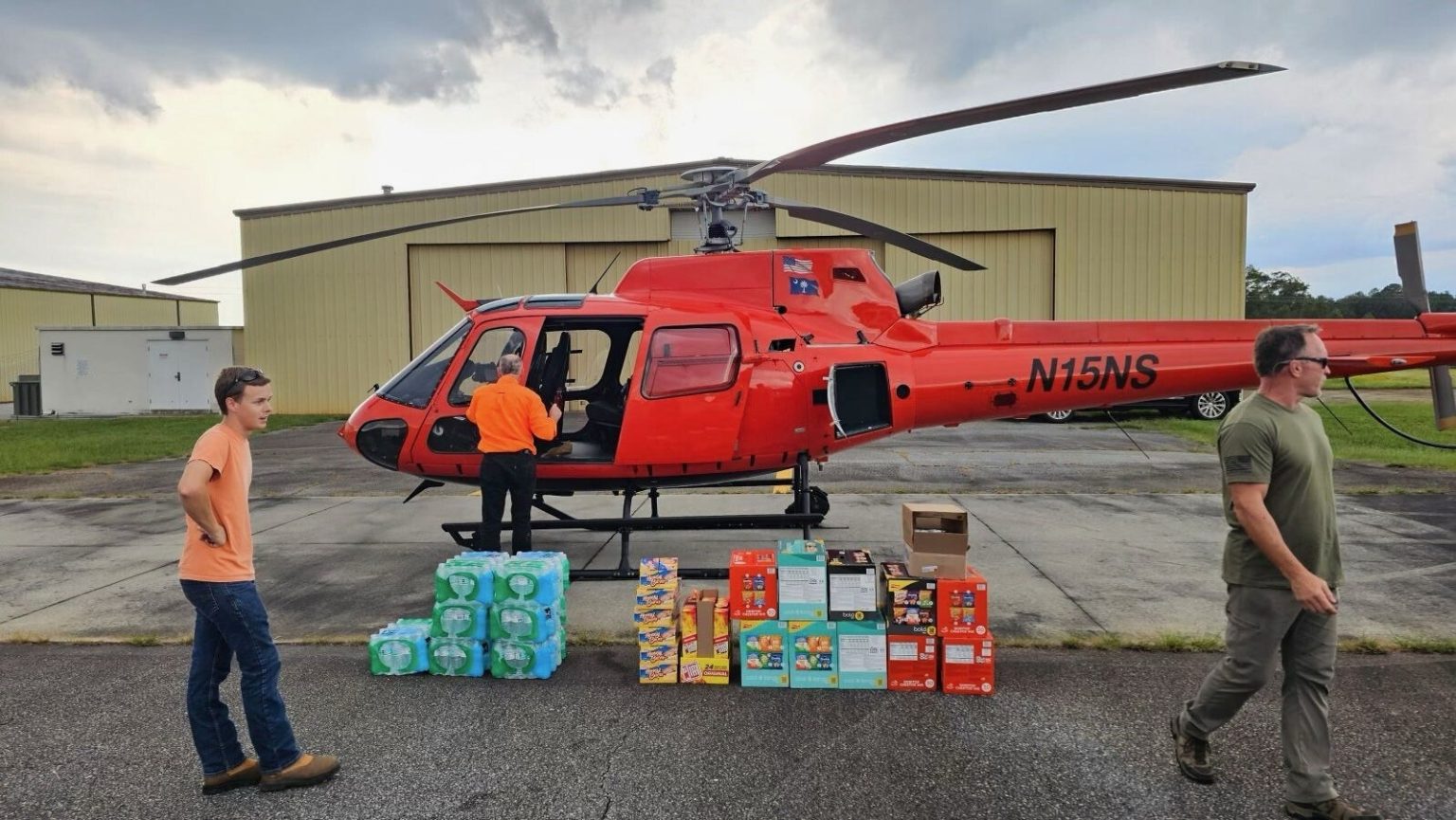Individuals with backgrounds in the military and law enforcement have taken it upon themselves to aid hurricane survivors in North Carolina due to the perceived lack of federal government assistance. The founder and CEO of Cops Direct, Aaron Negherbon, criticized the government for the inadequate funding of FEMA, which has left the agency unable to effectively respond to the aftermath of Hurricane Helene. With widespread devastation in North Carolina, efforts to save survivors have become a key issue as the election nears, with critics highlighting the government’s response as inadequate.
Former President Trump condemned the federal government’s response, particularly FEMA’s offer of $750 to individuals whose homes were destroyed by the hurricane. This criticism came after Secretary of Homeland Security Alejandro Mayorkas expressed concerns about FEMA’s dwindling funds and its inability to sustain response efforts throughout the hurricane season. Lawmakers subsequently approved a $20 billion replenishment of FEMA’s Disaster Relief Fund to address the shortfall. Vice President Kamala Harris, on the other hand, dismissed the criticism as “disinformation” and affirmed FEMA’s availability of resources for those in need.
Despite the government’s shortcomings, organizations like Cops Direct and individuals like Ross Johnson, owner of TacMed, have taken it upon themselves to provide crucial support to hurricane survivors. Using their networks and resources, they have been delivering emergency supplies to residents cut off by the storm, often inaccessible by traditional means due to washed-out roads. Johnson, a former Army Green Beret, utilized his piloting skills and connections to deliver supplies via helicopters to remote areas in the mountains, where FEMA has not been as active.
The volunteers aiding in North Carolina have emphasized that their efforts are driven by a desire to help their fellow Americans in need, rather than financial gain. They have invested their own time, skills, and resources to provide assistance to their neighbors in the aftermath of the natural disaster. Johnson highlighted the importance of local knowledge and accessibility by helicopter in reaching areas where traditional methods of transportation are ineffective. The grassroots efforts of these individuals aim to make a tangible difference in the lives of those impacted by Hurricane Helene, with a focus on areas where their unique skill sets can be most beneficial.
The response to the hurricane in North Carolina underscores the challenges faced by both the government and private individuals in disaster relief efforts. While FEMA plays a crucial role in coordinating national response efforts, limitations in funding and resources can hinder its effectiveness, prompting local organizations and volunteers to step in and address gaps in assistance. As political pressure mounts and criticism of the government’s response grows, the dedication and initiative shown by these individuals highlight the importance of community-driven support in times of crisis.
Ultimately, the collaboration between government agencies and grassroots organizations is essential in ensuring a comprehensive and effective response to natural disasters like Hurricane Helene. By leveraging their unique skills, resources, and networks, individuals from military and law enforcement backgrounds have been able to provide critical support to hurricane survivors in North Carolina. Their efforts serve as a reminder of the resilience and compassion of Americans in times of adversity, demonstrating the power of community-driven initiatives in addressing the needs of those affected by disasters.













